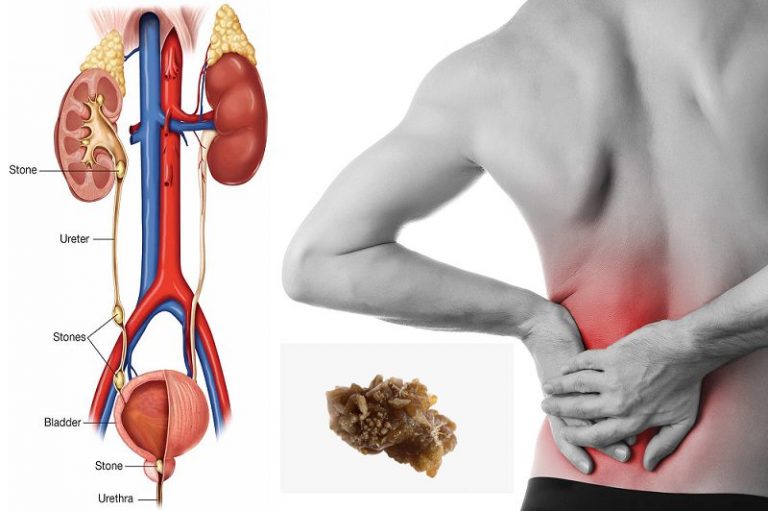Last Updated on March 13, 2024 by admin
Kidney stones are common occurrences throughout the world, with predicted worldwide value projection for its treatment and management reaching $2.2 billion by 2025.
However, even for such a common issue, several individuals are unaware of the symptoms of stone or calculus developing in the kidney. Learning about such symptoms can increase the likelihood of early detection, which, in turn, improves prognosis.
Besides the easily identifiable signs, one should also know various facts regarding kidney stones. Such information may prove indispensable for individuals afflicted with this condition in the future.
Table of Contents
1. Calcium intake does not lead to kidney stones
As per popular belief, individuals consuming calcium-rich foods are more likely to experience kidney stones. However, it is not the case. Milk products or other sources of calcium do not lead to the formation of such stones, even though the stone itself is composed of calcium masses.
Foods with high salt and protein composition are more to blame for such health disorders. Thus, individuals suffering from symptoms of stone developing in the kidney should regulate the intake of such food groups.
2. Drinking sufficient amount of water can prevent kidney stones
One of the easiest ways to avoid kidney stones altogether is to drink ample amount of water each day. Most individuals do not drink the recommended amount of water, which can not only lead to kidney stones but also trigger the development of other kidney-related issues. Around 2.5 litres of water is the minimum recommendation for a healthy adult to ensure proper functioning of the kidneys.
3. Other stones apart from calcium
Patients often carry a misconception regarding the composition of kidney stones. While calcium stones are the commonest, other stones can also form in one’s body. These include uric acid, struvite, and cysteine stones. Although less common, one must be aware of such occurrences as well.
4. Reducing salt intake drastically may cause more harm than good
If one suffers from symptoms of stone in the kidney, cutting salt intake considerably may not always help. The individual may already be consuming limited amounts of salt. Thus, reducing intake further can cause electrolyte imbalance in his/her body. Thus, consulting a doctor before taking such drastic steps is always advisable.
5. Stone size and shape can vary
The size and shape of kidney stones differ from one afflicted individual to another. In some cases, such growths can reach up to widths of five inches. Thus, the recommended treatment for one’s stone will depend on its size and shape.
6. Smaller stones often do not require any treatment
Some of the smallest kidney stones can pass through your urine unnoticed, without any treatment or medical help. Affected individuals may thus not develop any noticeable signs or symptoms under such instances. However, larger calculus deposits require medical attention along with invasive procedures.
7. Kidney stone colors can differ significantly
Most stones bear a yellowish tinge. However, darker colours have also been found in such growths. Similarly, the surface of a stone can be smooth or rugged, causing varying levels of discomfort to the patient.
However, one thing which is unsurprising about kidney stones is that their treatment tends to be quite expensive. From costly options, such as shock wave lithotripsy to ureteroscopy, undergoing such procedures can set your finances back significantly. Alternative ways to afford such treatment includes using financing options such as the Bajaj Finserv Digital Health EMI Network Card.
Apart from the symptoms of stone development in the kidney, planning to handle the financial aspect should be a priority as well. A health card can reduce the financial burden considerably if you are diagnosed with such, or any other, health condition.
Features and benefits of a health card
If you apply for a health card online, the following are some of features and benefits you can expect –
- EMI conversion of substantial medical bills – Cardholders can convert medical dues amounting up to Rs.4 lakh into monthly instalments, thus significantly increasing payment convenience.
- Flexibility of tenure – You can choose the credit tenure as per your convenience, which can range between 3 and 24 months.
- More than 5,500 network outlets – Cardholders can avail cashless medical services and products at partner outlets spread across more than 1,000 cities in the country.
- Covers almost all types of medical care – If you know what is telehealth, you would also know that availing medical care digitally is a valid option today, albeit costlier than conventional means of availing healthcare assistance. The health card offers financial coverage for all such medical expenses arising from telemedicine and more than 800 non-essential and essential procedures.
- One card covers an entire family – If you need to fund medical treatments and consultations of your spouse, children, parents, and/or siblings, such a card offers readily available financing to do so conveniently. Your immediate family members can share thus the pre-sanctioned limit on it to avail medical services.
- Nominal fee structure – Potential cardholders can avail such a card with a one-time joining fee of Rs.589. For insta cards, this fee is Rs.707.
- Avail offers and save more – When you shop at select outlets with this card, you are eligible to receive additional discounts and savings.
If you are showing symptoms of stone in the kidney, availing this card and using it to fund the required treatment can be a suitable option to ease the ensuing financing burden. As it does not include a waiting period, and one can utilise its benefits from the day it is issued.



